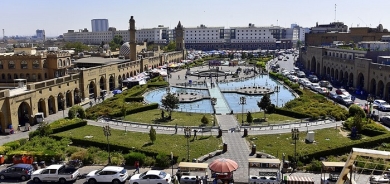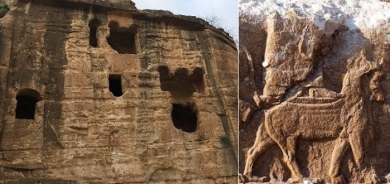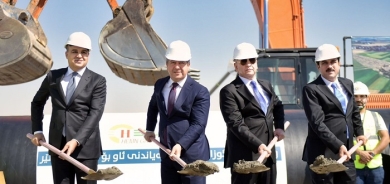President Nechirvan Barzani and Prime Minister Al-Sudani discuss developments in Iraq

President Nechirvan Barzani received Iraq’s Prime Minister Mr. Mohammed Shia Al-Sudani and his accompanying delegation on Tuesday evening.
The two leaders discussed the latest developments in the ongoing talks between Erbil and Baghdad, and exchanged views on the current situation in Iraq, highlighting the existing challenges facing the country.
President Nechirvan Barzani thanked Prime Minister Al-Sudani for completing the procedures for the provincialization of Halabja, and finalizing the Iraqi budget bill for the next three fiscal years to be voted on later in the parliament.
The President also voiced full support for Prime Minister Al-Sudani and the Iraqi Federal Government and called the accomplishments of the Prime Minister with regards to the government’s agenda positive and promising.
For his part, Prime Minister Al-Sudani praised the role of President Nechirvan Barzani in bringing the parties together, commended his relations with the political factions, parties and communities in Iraq, and valued his efforts and steps towards unity and consensus.
Mr. Al-Sudani stressed that the stability, security and progress of Iraq, including the Kurdistan Region, are intertwined, and considered the decision to grant governorate status to Halabja a small service compared to the crimes committed against the city.
The two sides also agreed on the importance of solidarity and unity among Iraqi forces and communities to maintain political stability in the country and to resolve the issues between Erbil and Baghdad on the basis of the constitution, stressing the importance of the private sector.
The meeting also discussed the relations between Iraq and the Kurdistan Region with the neighboring countries and the latest developments in the wider region.
After the meeting, President Nechirvan Barzani and Prime Minister Al-Sudani held a joint meeting with the leaders of political forces and parties and representatives of religious and ethnic communities in the Kurdistan Region, where they exchanged views on the current situation in Iraq and the Kurdistan Region.














